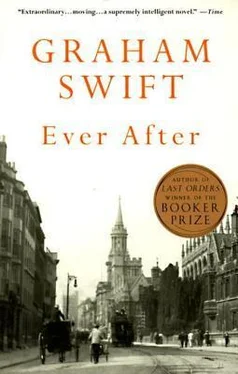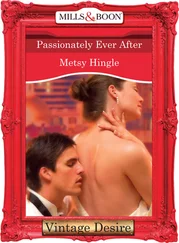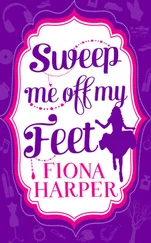She is gone. The night is still and starry. And the chimes from the church tower — one, two o’clock — seem to tell me she has made her choice.
I cannot sleep. I cannot move. I keep company with this notebook. This book! This book! What have I become, that I have parted from my wife, but I still keep company with this book?
Do we have souls? Do bees? Did Matthew have a soul? If not, why should he have written, over a period of six years, those pages in which it is no misapplication of a well-worked phrase to say he “laid bare his soul”?
But then the Notebooks ceased on that June day in 1860—or rather, a little later, when he had left wife, children and home. And they were, by his own description, the record of his life as a fiction: “the beginning of my make-belief.” From now on, he would be “real”—he would live according to the way things truly were. But if the soul is a fiction, why should a book — a few ideas set down on the page — make so much difference to the world? Did people have souls until 1859, when Darwin published his momentous work, then suddenly cease to have them?
And if the soul is a fiction, and it is all just a struggle for existence, why do we ever reach beyond ourselves to the existence of others, not to say beyond existence itself? Why do we think of the dead? And why, and for whom, did Matthew write the Notebooks at all? For some all-viewing, all-reading witness (like God in the sky)? For some “kindred soul” in the audience of the future (oh yes — an avid theatre-goer) who unexpectedly “identifies,” as the saying goes, with the plight of this “character” up there on the stage of the past?
Why do bees make honey? They say it will last, uncorrupted, for a thousand years. People have eaten honey from the tombs of the pharaohs. They say it is as good as gold.
I see the two men in the little apiary at the far corner of the garden. I see Ruth pacing beside the tumbledown fence, learning her parts. They stoop over the first hive. They have an observer (as well as God in the sky): the Rector’s wife — let’s suppose she was watching, watching quite intently, from a rear window of the Rectory. She knows that something is in the offing. She knows that the two men do not see eye to eye. It is some while since she has indulged the fond notion that Matthew is like a son to her husband (there have been regrettable developments by this time, with Matthew’s own father). And her former motherly soft spot for her son-in-law (who, after all, scarcely had a mother of his own) has hardened of late. It is high time the Rector took things firmly in hand. And now here is Matthew again, showing up with his face like the calm before a storm. And here is her husband employing his usual blustering, stalling, side-tracking tactics.
The sky is heaven-blue. The hives hum like little generators. Dressed in their grotesque costume, as if for some strange form of martial art, the two men bend over their peaceable task. The Rector has lit his curious, home-made smoking-device. They proceed to the second hive. The Rector removes its roof. They seem to confer. Then there is a distinct pause. The two men pull themselves upright. An evident disagreement. Some difference of opinion on the finer points of apiarian practice? Hardly. The exchange is more fraught, more passionate, than that. There is a pacing to and fro and flinging of arms — the older man waves his smoking-device like some useless gun. The inspection of the other hives is forgotten. More gesticulation. Then the gentle Rector seems suddenly to wax apoplectic. He throws aside his smoker: the smoke indeed might be issuing from his head. He shouts something at his companion, marches off to the very edge of the garden, delivers a blow to one of the apple trees, stands stiff and intent for an instant, like a man taking a final look at a cherished view, then turns.
You have to picture the scene. You have to reconstruct the moment, as patient palaeontologists reconstruct the anatomies of extinct beasts. If it were not for Matthew’s Notebook, nobody might have known it had happened at all, it might have been as though it never was. So what, on the part of this unforeseen testifier, is a little bit of creative licence? A little bit of fiction? The place: a rectory garden in Devon (it is like the setting for some vapid period piece — of course, Potter’s TV “realisation”). The time: a June afternoon in 1860. The persons: Gilbert Hunt (the Rector); Matthew Pearce, his son-in-law; (off-stage, Emily, the Rector’s wife). I don’t know what they really said, but all around them, like some counterpoint — it’s the same sound now as it would have been then — was the undesisting drone of bees.
… RECTOR: But look, look again at the contents of this hive! Look at the combs! You are aware that they are constructed upon a principle that is geometrically perfect. Geometrically perfect! Is it not astonishing? And you are to tell me that this is some freak, some stroke of chance? Have you no spirit of wonder ? You may as well say that a rose is an ugly thing that stinks!
MATTHEW: I do not question the wondrousness of things — only that God made them so.
RECTOR: So, so. Then how comes your very wonderment? How comes your capacity to behold, marvel and inquire? How comes, Matthew, the marvel of your marvelling brain?
MATTHEW: In just such a way — I cannot tell exactly — as comes the marvel of the bee and the honeycomb.
RECTOR: Indeed! And you may as well have a honeycomb for a brain! Do you hold yourself as no more favoured than a bee?!
MATTHEW: That is no simple question. A bee, had he my faculty of speech, might profess that I lacked his faculty of flight, and his unrivalled ability to build in wax.
RECTOR: Do not joke with me, Matthew.
MATTHEW: I don’t joke. I say only that creation — I use your word — favours no species save as it adapts successfully to its means of existence. A million fossils tell us that nature discards as well as promotes. The bee and mankind are just two of her ventures.
RECTOR: I see, sir, I see. So we may as well shut the book of nature, and give thanks to no one when next we spread a little honey on our bread? And what of Holy Writ? We must have it out now, sir, it has come to this! What of the words of the prophets and evangelists? Come, speak your blasphemies!
MATTHEW: Poetry! Poetry! Like your precious Virgil, who so extolled the genius of the bees. Admirable, inspired and inspiring, and composed by those, I do not doubt, who believed what they set down. But poetry — fiction!
RECTOR: And your Darwin — who has had the bene fit of the world’s judgement for a little less time than the Bible — he only lacks the poetical inspiration to found a new creed?! By God, sir, by God, I charge you now to repeat your creed, here, before me, a minister of the church. And if you cannot — if you cannot, Matthew, if you will not — then, by God—
But I do not know, I cannot even invent, what the Rector said. I falter in my script-writing, just as the Rector himself, perhaps, faltered on the verge of his imprecation. Did he say, wavering desperately at the last moment, “But can you not pretend ?” Did he utter, thinking of the scandal about to unleash itself on the quiet backwater of Burlford, only what an inner voice had uttered to Matthew for six years? “I give you one last chance. I bid you go back now to your home. I bid you say nothing of this to Elizabeth, nor to anyone. I bid you go through the motions — yes, if it must be so for you — of a God-fearing man, of the husband of your wife and the father of your children. And if you cannot do this, then never darken my church door again, nor this rectory, nor, with my blessing, the home of my daughter! Go sir! Choose your way!”
Читать дальше












